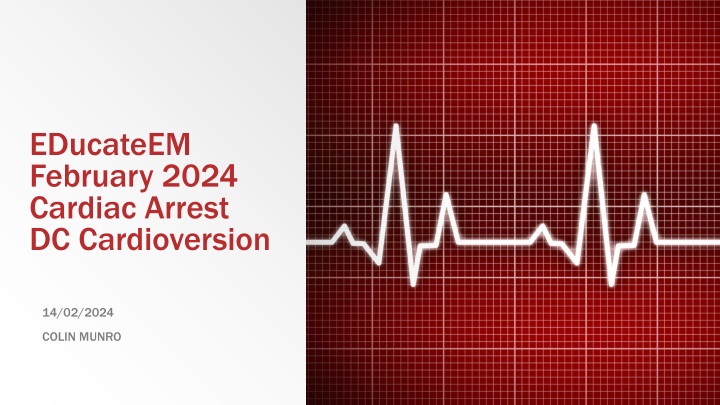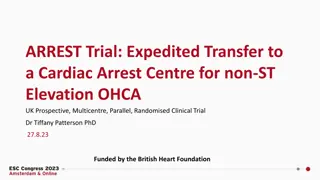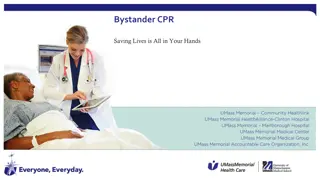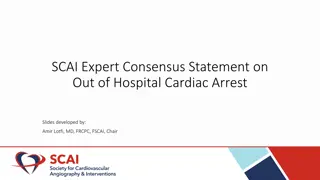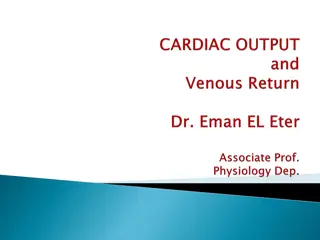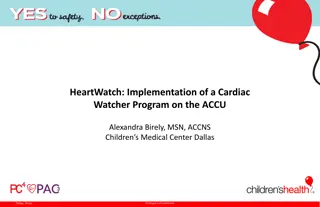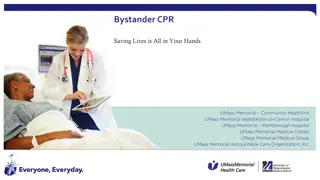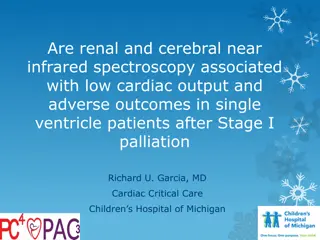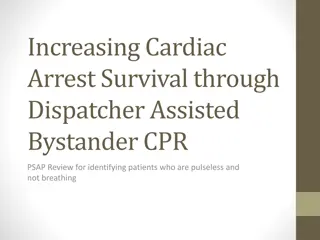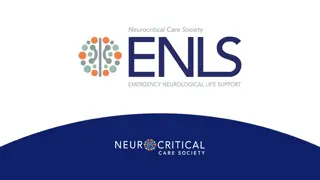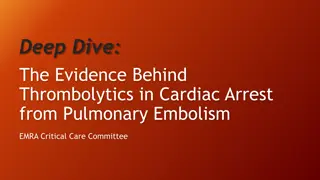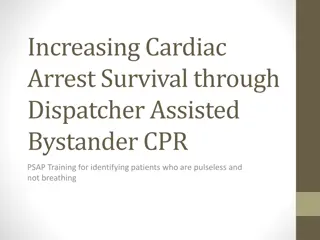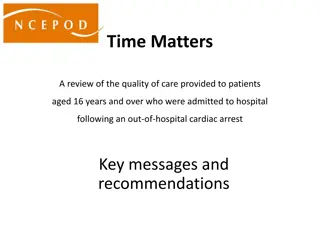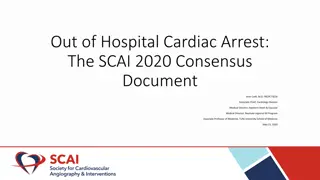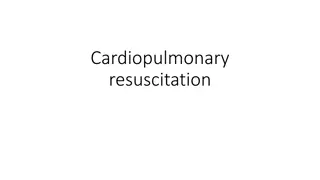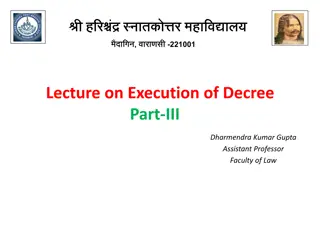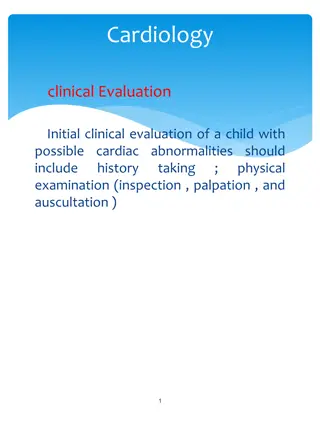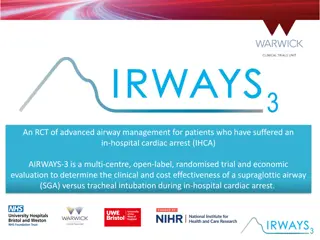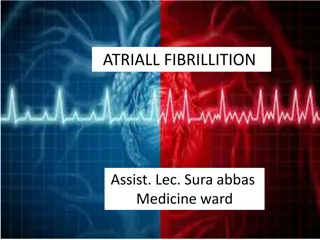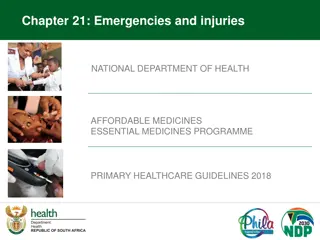Effective Strategies for DC Cardioversion in Cardiac Arrest Management
Understanding the indications for DC cardioversion, preparing the environment and equipment, knowledge of defibrillator use, and post-cardioversion care are crucial steps in managing cardiac arrest cases. This educational material provides a comprehensive guide on when to intervene, how to prepare, proper defib use, and post-care considerations for successful outcomes in cardioversion procedures.
Download Presentation

Please find below an Image/Link to download the presentation.
The content on the website is provided AS IS for your information and personal use only. It may not be sold, licensed, or shared on other websites without obtaining consent from the author.If you encounter any issues during the download, it is possible that the publisher has removed the file from their server.
You are allowed to download the files provided on this website for personal or commercial use, subject to the condition that they are used lawfully. All files are the property of their respective owners.
The content on the website is provided AS IS for your information and personal use only. It may not be sold, licensed, or shared on other websites without obtaining consent from the author.
E N D
Presentation Transcript
EDucateEM February 2024 Cardiac Arrest DC Cardioversion 14/02/2024 COLIN MUNRO
DC Cardioversion Aims 1. Understand the indications 2. Know how to prepare 3. Know use the defib for cardioversion 4. Post cardioversion care
1. Understand the Indications Intervene so peri-arrest arrhythmias don t progress Patient with adverse or life-threatening features Shock (Systolic<90mmHg) Syncope Myocardial ischaemia Severe heart failure
2. Know how to prepare Environment? Monitoring? Equipment? Personnel? Patient?
3. Know use the defib for cardioversion* *Cardioversion not defibrillator Pad placement with monitoring leads Get out of AED mode Sync button Energy selection (ALS book) Atrial Flutter/SVT Start at 70-120J Pulsed VT Start at 120-150J Atrial Fibrillation Start at highest energy output (360J) NHST policy 200, 300, 360J Safe use of defib Need to hold down shock button
4. Post cardioversion care Success? Further attempts at increasing energy Change pad position Amiodarone + further shocks Cardiology input Repeat ECG Observation (cardiovascular stability and recovery from sedation). Disposition CCU
DC Cardioverison Summary Life threatening features Preparation is key Defib set-up Post cardioversion care
